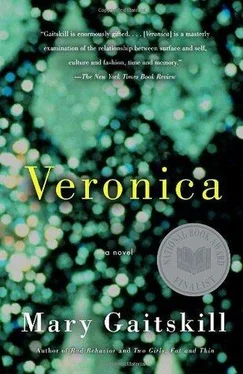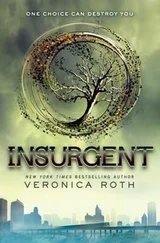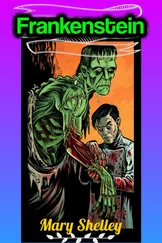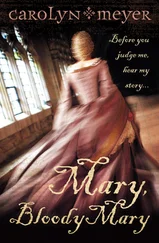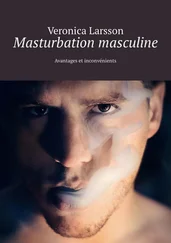Up close, she was not askew in any way. She was monstrously ordered. In her plaid suit, ruffled blouse, and bow tie, she was like a human cuckoo clock. She gave me a pursed smile, lighted a cigarette, and opened a magazine. We sat a long time with no work. I stared out the window. The East River became a dark length of flickering movement with a lit boat on it. In Queens, the neon sign of a sugar factory rose up, its script burning red and radiant in the night.
“Excuse me,” said Veronica. “Have you spent time in Paris, hon?”
I was surprised, but I just said, “Yeah.”
“I thought so. You have a Parisian aura.” She turned her head sideways and worked her throat, head back, cigarette angled rakishly up and out. “I haven’t been there for ages, but I do so well remember the Jardin du Luxembourg in autumn, with the yellow horse chestnuts in bloom.”
We were paired again for the next three nights. I got used to the strange, strident pitch of her voice, even felt oddly caressed by its twists and changes. I talked to her about looking for a job. I told her about the editor calling me “spooky and incongruous.”
“Really? Dorothea Atcheson called you spooky? How delightful.”
“You know her?”
“Not personally. But I’ve read her publication.”
“I filled out an application, but when I called her, she said she’d forgotten about me. Then she said to call back this week. Do you think she’s serious?”
“No. Yes. Who knows if anybody’s serious? But I can imagine Dorothea Atcheson would appreciate you.”
Her voice on appreciate was like the rough tongue of a cat absently licking a kitten on the head. I could not help raising my head to meet it.
The next day, I called Dorothea Atcheson. “You’re going to think I’m awful,” she said, “but I’ve lost your application. Do you suppose you could run by the office and fill out another one?”
“Well,” said Veronica. She drew on her cigarette and tipped her head back; her throat beat like an intelligent heart. She exhaled and asked, “Have you ever seen A Star Is Born with Judy Garland and James Mason?”
I shook my head.
“It’s worth buying a VCR for, but barring that, look for it late on the Movie Channel; they show it constantly.” She smoked; her heart-throat beat. “It’s about a girl whose dreams aren’t big enough, who gets a break and becomes a star.”
“My dreams aren’t the problem. I’m looking for a job as a secretary and I can’t get one because I’m not qualified.”
“Judy Garland isn’t qualified, either! But she meets someone who sees her qualities, who believes in her.”
Another proofreader, a balding little queen named Alan, wheeled round in his frayed throne. “And then he kills himself because she’s left him in the dust.”
“ ‘It’s too late!’ ” cried Veronica. “ ‘I destroy everything I touch. I always have! You’ve come too late!’ ”
“ ‘No!’ ” fluted Alan. “ ‘It’s not too late, not for you, not for me!’ ”
“ ‘Believe it!’ ” exulted Veronica. “ ‘Believe it! Believe it!’ ” In nine of the pictures, it was ridiculous and ugly. But in the tenth one, it was thrilling. I smiled.
Veronica exhaled her smoke and smiled back with fierce, fancy-twisted warmth. “You won’t be here long, hon,” she said. “Trust me.”
I cross into the canyon on a wooden footbridge. The stream below is awake and rushing, light tossing on its cold flux. Silver wrinkles flow in a quick sheet, churn into foam, disperse and sink, flow up and wrinkle the water again. Bright algae, pebbles, and tiny fish stir back and forth. I step off the bridge; huge and calm, the landscape unfolds. Silent and still, it rings with force and hidden motion. The ringing strength is like blood singing in the body of the ground — passionate music you don’t hear with your ear, but feel just outside your senses. Redwoods rise up straight; madrones elegantly wind. Soaked moss and brilliant leaves fill the air with green and tender feeling. Tenderness seeps into and softens my fever. The unfolding deepens.
I said I had not gone to New York to be a model, and I hadn’t. I’d gone there for life and sex and cruelty. Not something you learn in community college. Not something you write in a notebook. The city was so big and bright that for a moment my terrible heaven paled, then went invisible. I thought it was gone, but what I couldn’t see, I felt walking next to me in streets full of vying people. I felt it in their fixed outthrust faces, their busy rigid backs, their jiggling jewelry, their creeping and swagger. I felt it in the office workers who perched in flocks on the concrete flower boxes of giant corporate banks, eating their lunches over crossed legs and rumpled laps, the wind blowing their hair in their chewing mouths and waves of scabby pigeons surging at their feet, eating the bits that fell on the pavement. I felt it in the rough sensate hands of subway musicians playing on drums and guitars while the singer collected money with his cup, still singing like he was talking to himself in a carelessly beautiful voice while riders streamed down concrete stairs like drab birds made fantastic in flight. I felt monstrous wants and gorgeous terrors that found form in radio songs, movie screens, billboards, layers of posters on decayed walls, public dreams bleeding into one another on cheap paper like they might bleed from person to person. I took it in and fed on it, and for a while, that was enough.
Then one day on my way to work, a cab stopped in front of me on a trash-blown street and Alana got out. I looked at her and my breath stopped. She slammed the cab door; her shining hair flashed about her face. I stood still while everybody else crossed the street. She walked lightly in neat white boots, but her eyes gave off the cold glow of an eel whipping through remote water. Down, down through the water floated a magazine picture of a girl in crumpled lace. A picture like a door with music behind it, rolling with the water and soon to be erased by it. “Alana,” I said, but too softly. She walked past me without turning. My face burned. And I wanted heaven again.
But I didn’t know how to get it. Before I had gotten it because a hand had picked me up and put me in the middle of it. Then I lost it because a hand removed me. I knew Alain’s hand could reach across the ocean; I knew he was associated with two powerful New York agencies. Candy said he probably had too much on his mind to bother with me. But she hadn’t seen him naked, with coke coming out his nose, pacing and yelling into the phone, looking for people who might’ve said something bad about him just so that he could fuck them up. Years later and miles away, I still saw him. I saw my hands walking on rich red carpet like paws, me laughing at my legs in the air and his dick inside me. Or panting and openmouthed, a tiny strand of saliva glistening between me and the rug before it dropped.
I looked for another hand to find me. I walked the street, searching for men in beautiful suits, searching their faces for the lips of a spider drinking blood with pure, blank bliss. If I found one, I would look into his eyes, and usually he would look back. If he asked me for my number, I would ask him for his card. The first few times, I looked at the card, put it in my pocket, and mentally threw it away. The last time, I dropped it on the pavement and cursed the gentleman spider to his face.
I stopped looking for a permanent job. I went out whenever I could, under any circumstance. When Sheila’s cousin in Brooklyn had a birthday party, I took the train out, only to stand in a sparsely furnished room with strangers. When a temp at the office gave a reading combined with a dance performance, I showed up to watch determined girls in leotards creep and crouch across a ratty stage drenched in nightmare orange. A friend of Candy’s — a harmless girl I despised for being harmless — invited us to a bachelorette party and I went.
Читать дальше
